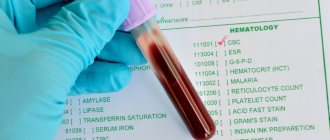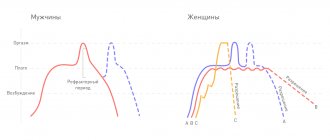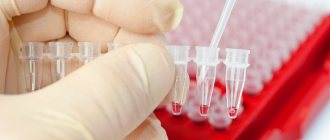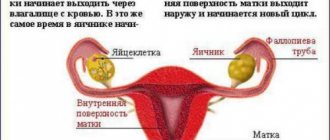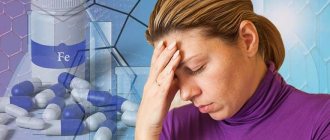Iodine is a vital element that is part of thyroid hormones. Testing serum iodine levels can be used as an indicator of adequate intake or iodine overload, especially when using iodine-containing medications. Excess iodine, like its deficiency, can be dangerous to health. In high concentrations, iodine exhibits toxicity, leads to pathology of the thyroid gland, damage to the skin and respiratory tract, feelings of fatigue, weakness, depression, and has a teratogenic effect on the fetus.
Synonyms Russian
Iodine in the blood; iodine level; iodine deficiency, excess iodine, thyroid gland; thyroid hormones, T3, T4, TSH.
English synonyms
Iodine, serum; iodine level, iodine deficiency, thyroid gland; thyroid hormones.
Research method
Inductively coupled plasma mass spectrometry.
Units
μg/L (micrograms per liter).
What biomaterial can be used for research?
Venous blood.
How to properly prepare for research?
- Children under 1 year of age should not eat for 30-40 minutes before the test.
- Do not eat for 2-3 hours before the test; you can drink clean still water.
- Do not smoke for 30 minutes before the test.
General information about the study
Iodine is one of the vital elements, without which the normal functioning of the body is impossible. Diseases caused by iodine deficiency have a wide range of clinical manifestations and are a serious medical and social problem throughout the world. The need for iodine is satisfied by its intake from the outside, mainly with food and water (90-95% of the daily requirement). The daily requirement for iodine depends on age and physiological state and averages 150-200 mg per day. The most sensitive to iodine deficiency are infants, adolescents during puberty, pregnant women, and nursing mothers.
Iodine is a structural component for the synthesis of the thyroid hormones thyroxine (T4) and triiodothyronine (T3), the normal production of which is possible only with sufficient intake of the microelement into the body. The secretion of T3 and T4 is regulated by the hormone TSH, produced in the pituitary gland.
Thyroid hormones have a wide spectrum of action and play an important role in the life of a person of any age, but especially in the prenatal period and in early childhood. Thyroid hormones affect the metabolism of proteins, fats and carbohydrates, the growth, development and differentiation of organs and tissues, the function of the central and peripheral nervous system, cardiovascular and respiratory systems. Deficiency of thyroid hormones in the fetus and in early childhood can lead to irreversible impairment of mental development, including cretinism. In iodine-deficient areas, women's reproductive function is impaired, and the number of miscarriages and stillbirths increases. Iodine deficiency is a proven risk factor for fetal development disorders.
Iodine enters the body in both organic and inorganic forms. Iodine obtained from food and water makes up the majority of inorganic iodine. Almost all iodine entering the body is absorbed in the small intestine, its bioavailability approaches 100%. Iodine circulates in the blood both in a protein-bound state and in the form of iodide. About 2/3 of the incoming iodine is excreted by the kidneys, as well as the salivary and sweat glands. Iodine enters the thyroid gland only in inorganic form. Thyroid cells (thyrocytes) have the unique ability to take up iodine anions from the blood against a concentration gradient. This is an energy-dependent process involving ATP. Then enzymatic oxidation of iodide ions occurs to molecular iodine, which is used in the biosynthesis of the thyroglobulin molecule, a precursor of thyroid hormones. Thyroglobulin, consisting of the amino acid tyrosine and iodine, accumulates in the follicles of the thyroid gland and is a kind of reserve from which thyrocytes, if necessary, quickly synthesize thyroxine, which is released into the blood.
Iodine deficiency leads to a decrease in hormone synthesis, and this in turn (according to the principle of negative feedback) leads to activation of TSH secretion. Under the influence of TSH, hypertrophy (increase in size) and hyperplasia (increase in number) of follicular cells of the thyroid gland occurs, resulting in the formation of a goiter. Thus, goiter is a compensatory reaction aimed at maintaining the level of thyroid hormones in the body.
Iodine deficiency leads to characteristic changes in the hormonal profile: there is a decrease in the level of T4, while the level of T3 can remain within normal values for a long time, so that a euthyroid state is clinically diagnosed. Only with severe and prolonged exposure to iodine deficiency is a decrease in T3 observed. Sufficient levels of circulating T4 are critical for the development of the nervous system, for the normal functioning and maturation of nerve cells and the development of neuronal connections. Even with moderate iodine deficiency and the absence of clinical signs of a hypothyroid state, the central nervous system already experiences a state of “thyroid starvation.”
The main symptoms of iodine deficiency in the body
Clinically manifested by various forms of hypofunction of the thyroid gland:
- increased production of thyroid hormones;
- endemic or sporadic cretinism in children;
- formation of endemic goiter and myxedema in adults
The main symptoms of excess iodine in the body:
Clinically manifested by various forms of hyperfunction of the thyroid gland
- hyperthyroidism, thyrotoxicosis, Graves' disease or diffuse toxic goiter;
- nodular hyperthyroid goiter, thyrotoxic tumor
What is the research used for?
- Detection of excess iodine intake or iodine deficiency in the body
When is the study scheduled?
If you suspect excess iodine in the body:
- headaches, excessive fatigue, loss of strength, increased irritability, tearfulness, sleep disorders;
- decreased physical and mental performance;
- depressive states;
- tachycardia (increased heart rate);
- development of tremor (shaking);
- development of goiter (increased volume of gland tissue) and bulging eyes;
- rashes, acne, skin numbness;
- iododerma (skin damage as a result of long-term use of large doses of iodine preparations);
- iodism (aseptic inflammation of the mucous membranes of the respiratory tract, salivary glands, paranasal sinuses).
If iodine deficiency is suspected:
- hypothyroidism (extreme manifestations in children - cretinism, in adults - myxedema);
- loss of strength, decreased performance, drowsiness, development of edema of the limbs, torso, face;
- elevated cholesterol levels;
- weight gain;
- bradycardia (a type of arrhythmia with a low heart rate);
- constipation;
- decreased intellectual level: slowed mental reaction, impaired cognitive functions, attention;
- physical, neurological, mental defects of cretinism due to iodine deficiency in the first six months of the mother's pregnancy;
- deaf-mute;
- various types of paralysis;
- decreased fertility;
- increased mortality during the perinatal period.
What do the results mean?
Reference values: 30 - 60 µg/l.
Increased values: excessive iodine intake.
Decreased values: insufficient intake, disorders of iodine metabolism.
Causes of iodine deficiency in the body:
- unsatisfactory amount of microelement intake from food;
- low consumption of seafood;
- lack of iodine prophylaxis in iodine-deficient regions;
- the presence in the diet of factors that interfere with the absorption and utilization of iodine (intake of excess amounts of bromine, iron, manganese, lead, calcium, chlorine, cobalt);
- taking medications that make it difficult to absorb and utilize iodine (lithium carbonate);
- iodine metabolism disorders;
- increase in background radiation;
- habitat pollution;
- increasing the body's sensitivity to allergens.
Causes of excess iodine in the body:
- excessive iodine intake;
- iodine metabolism disorders.
Biological role of iodine
The main biological role of iodine is the synthesis of thyroid hormones (thyroxine and triiodothyronine), through which it realizes the following effects:
- stimulates the growth and development of the body
- regulates tissue growth and differentiation
- increases blood pressure, as well as the frequency and strength of heart contractions
- regulates (increases) the rate of many biochemical reactions
- regulates energy metabolism, increases body temperature
- regulates protein, fat, water-electrolyte metabolism
- regulates vitamin metabolism
- increases oxygen consumption by tissues
References
- Federal clinical guidelines for the diagnosis and treatment of thyrotoxicosis with diffuse goiter, nodular/multinodular goiter, 2014. - 25 p.
- Histology (introduction to pathology) / ed. E.G. Ulumbekova, Yu.A. Chelysheva, 1997. - P. 147-163.
- Oncology / ed. IN AND. Chissova, S.L. Daryalova, 2007. - pp. 83-99.
- Guyton, C., Hall, E. Textbook of Medical Physiology. 13th Edition, 2015. - P. 1075-1093
- Kumar, V., Abbas, A., Fausto, N. et al. Robbins and Cotran Pathologic Basis of Disease, 2014. - 1464 p.
Excess iodine
Causes of excess iodine
- excess intake and disruption of its metabolism
Consequences of excess iodine
- development of thyrotoxicosis (increased levels of thyroid hormones)
- weight loss
- dyspeptic disorders
- fragility and hair loss
- muscle weakness, paralysis
- decreased skeletal strength, tooth decay
- development of toxicoderma (iododerma)
- formation of diffuse toxic goiter
- tachycardia
- development of iodism (aseptic inflammation) of the mucous membranes in places of intense iodine secretion (respiratory tract, salivary glands, etc.).
Ways to prevent iodine deficiency
The daily iodine requirement of an adult is 150-200 mcg (and over a lifetime a person receives only 3-5 g of iodine - about a teaspoon), while a Russian consumes on average only 40-60 mcg of iodine per day. Iodine is necessary for both a pregnant woman and her newborn baby. A nursing mother needs to consume 225-350 mcg of iodine per day. Artificially fed newborns need to receive about 100 mcg of iodine from the first days of life. How to avoid iodine deficiency? In all plant products its content is extremely low. The most iodine is found in sea fish, seafood and seaweed. In Japan, for example, there are no problems of iodine deficiency, because its residents consume seafood in large quantities. You can, of course, recommend seaweed for the prevention of endemic goiter. But this product is unusual for Russians - you can’t eat a lot of it. You can eat sea fish, but then you have to eat a kilogram of fish every day, which is not only hard on the stomach, but also inaccessible to the vast majority of the population. Now there are products (yogurt, milk) whose labels indicate that they are fortified with iodine. But if you pay attention to the concentration of iodine contained there, it turns out that, for example, a child under one year old should eat 1 kg of such yogurt per day in order to receive the daily requirement of the necessary microelement. In addition to products, there are a huge number of dietary supplements that are offered to correct iodine deficiency. It must be borne in mind that they are not drugs, and therefore do not undergo appropriate clinical trials. But when taking iodine preparations orally, it is important to control how much of it enters the body, because its excessive concentration, as well as its insufficient concentration, can have negative consequences. It is very important that the dosage of iodine is indicated on the packaging of drugs and dietary supplements. Previously, for the treatment and prevention of goiter, it was proposed to use pure medical iodine in the form of an alcohol tincture or Lugol’s solution, which is absolutely wrong. One drop contains the monthly norm for a person. You should use proven drugs that contain iodine in physiological quantities - 150-200 mcg per tablet, for example, potassium iodide. This highly purified drug is absolutely safe, it contains iodine in a dose equal to a person’s daily requirement (200 mcg), has no side effects, gives a stable and long-lasting effect at any age and is affordable for any Russian.
Complications of hyperthyroidism
As the disease progresses, the symptoms of thyroid hyperthyroidism intensify, and complications may arise:
- Disturbances in the functioning of the heart . Atrial fibrillation is added to the general symptoms of hyperthyroidism. The patient does not tolerate physical activity well, and there is a disturbance in heart rhythm. Congestive heart failure may develop. The consequences are reversible. After eliminating hyperthyroidism, the signs of arrhythmia are completely cured.
- Increased bone fragility . In its advanced form, hyperthyroidism causes disturbances in the structure of bone tissue. Osteoporosis develops. The reason bones become brittle is that excess hormones prevent calcium from being incorporated into the bone.
- Eye diseases . Graves' ophthalmopathy adds to the symptoms of hyperthyroidism. The cause of the pathology is the growth and swelling of the tissues located behind the eyeballs. The patient feels pain in the eyes, sensitivity to light, and complains of double vision. Visual acuity gradually decreases. In advanced cases, blindness develops.
- Skin problems . Ocular symptoms in hyperthyroidism often develop in parallel with Graves' dermopathy. The skin becomes swollen and red, especially around the feet and legs.
- Thyrotoxic crisis . An increase in the level of thyroid hormones in the blood can cause a sudden fever and an increase in all the main symptoms. Thyrotoxic crisis is accompanied by tachycardia. In some cases, delirium (mental disorder) occurs. The patient requires emergency medical care.
Diagnosis of hyperthyroidism
Consultation with an endocrinologist
Diagnosis of hyperthyroidism begins with an appointment with an endocrinologist. At the appointment, the doctor asks the patient questions that will help in diagnosis: how long ago did the clinical symptoms appear, what is the dynamics of the disease, are there any other patients with goiter or thyroiditis in the family. A physical examination is required: palpation of the thyroid gland. In case of obvious hyperthyroidism, the doctor will try to palpate the contours of the organ, determine its position, uniformity of structure, and pain. After the examination, the patient receives directions for further examinations to accurately diagnose the cause of the disease.
Laboratory research
Hyperthyroidism is confirmed by blood tests to measure the level of thyroid hormones. Elevated levels of thyroxine in the absence or minimal amount of TSH indicate hyperfunction of the gland. A blood test is especially important in the early diagnosis of the disease in older people. For example, menopausal women may not have symptoms of hyperthyroidism. Pathology is detected only by the results of laboratory tests.
A blood test helps confirm the condition of the endocrine organ, but additional tests will be required to determine the cause of hyperthyroidism.
Instrumental research methods
Ultrasonography. Ultrasound of the thyroid gland allows you to determine the shape and size of the lobes, assess the degree of its enlargement, and detect nodes, cysts, and other neoplasms.
Radioisotope scintigraphy . The patient is given a special solution intravenously. The drug contains radioactive isotopes of iodine, which are actively captured by the thyroid gland. After some time, the doctor assesses the degree of saturation of the tissues and makes a conclusion about their functionality. A large amount of radioiodine indicates excessive production of thyroxine, which develops, in particular, with Graves' disease.
If, with severe symptoms of thyroid hyperthyroidism in a woman or man, a minimal amount of isotopes is observed in the gland, then the probable cause of the pathology is thyroiditis. The radioactive iodine uptake test helps in differential diagnosis.
Fine needle biopsy . Under the control of an ultrasound probe, the doctor takes samples of thyroid tissue for examination. Biopsy materials make it possible to determine the nature of the neoplasm: benign or malignant. The study results also provide information about autoimmune processes that may cause hyperthyroidism.
Relevance of the problem of iodine deficiency
Currently, iodine deficiency diseases are the most common non-infectious human diseases. According to WHO, about 85% of the Russian population lives in areas with iodine deficiency. In terms of chemical composition, the soil of most territories of Russia is poor in iodine. In addition, significant changes in the nutritional pattern of Russians have played a major role in the development of iodine deficiency in recent years. Consumption of sea fish and seafood rich in iodine, as well as meat and dairy products, which contain relatively high iodine content, has decreased. In addition, the lack of awareness among the population about the simplest ways to prevent thyroid diseases plays a large role in the increase in the incidence rate. Thus, according to the results of a large-scale study of public opinion on the problem of diseases from iodine deficiency conducted in nine regions of Russia, it turned out that the biggest problem is poor awareness of the population. Respondents have little idea of the health threat posed by a lack of iodine in the diet. Two thirds of respondents have no idea how to protect themselves and loved ones from iodine deficiency. Meanwhile, iodine is an essential element. The processes of growth, development and general tone depend on it; full development of the gonads, the formation of various brain functions responsible for intelligence, and many other functions of our body. Unfortunately, iodine is one of the microelements that the body is not able to produce on its own. It is found in soil and seawater in the form of iodide. Its content in the soil is usually low. As a result, all plants have insufficient iodine content. This causes severe iodine deficiency in a large part of the world's population living on subsistence farming. This applies to many regions of Russia. Thus, we receive iodine in minimal quantities with food, and even less in drinking water.

